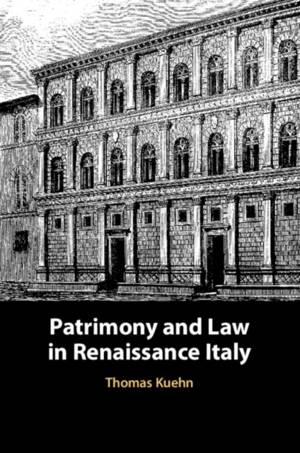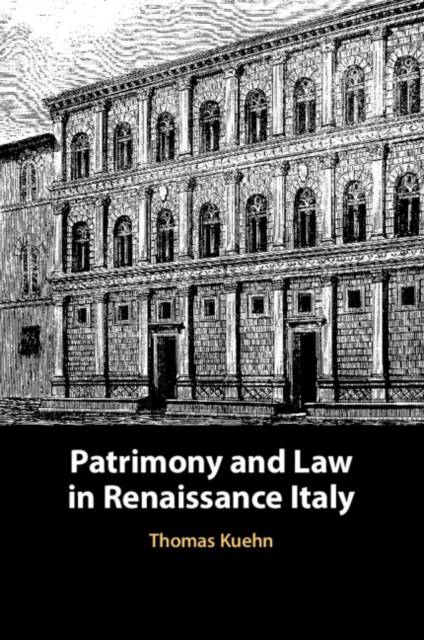
Bedankt voor het vertrouwen het afgelopen jaar! Om jou te bedanken bieden we GRATIS verzending (in België) aan op alles gedurende de hele maand januari.
- Afhalen na 1 uur in een winkel met voorraad
- In januari gratis thuislevering in België
- Ruim aanbod met 7 miljoen producten
Bedankt voor het vertrouwen het afgelopen jaar! Om jou te bedanken bieden we GRATIS verzending (in België) aan op alles gedurende de hele maand januari.
- Afhalen na 1 uur in een winkel met voorraad
- In januari gratis thuislevering in België
- Ruim aanbod met 7 miljoen producten
Zoeken
€ 35,45
+ 70 punten
Uitvoering
Omschrijving
Family was a central feature of social life in Italian cities. In the Renaissance, jurists, humanists, and moralists began to theorize on the relations between people and property that formed the 'substance' of the family and what held it together over the years. Family property was a bundle of shared rights. This was most evident when brothers shared a household and enterprise, but it also faced overlapping claims from children and wives which the paterfamilias had to recognize. Thomas Kuehn explores patrimony in legal thought, and how property was inherited, managed and shared in Renaissance Italy. Managing a patrimony was not a simple task. This led to a complex and active conceptualization of shared rights, and a conscious application of devices in the law that could override liabilities and preserve the group, or carve out distinct shares for each member. This wide-ranging volume charts the ever-present conflicts that arose and were a constant feature of family life.
Specificaties
Betrokkenen
- Auteur(s):
- Uitgeverij:
Inhoud
- Aantal bladzijden:
- 268
- Taal:
- Engels
Eigenschappen
- Productcode (EAN):
- 9781009073967
- Verschijningsdatum:
- 23/05/2024
- Uitvoering:
- Paperback
- Formaat:
- Trade paperback (VS)
- Afmetingen:
- 152 mm x 229 mm
- Gewicht:
- 362 g

Alleen bij Standaard Boekhandel
+ 70 punten op je klantenkaart van Standaard Boekhandel
Beoordelingen
We publiceren alleen reviews die voldoen aan de voorwaarden voor reviews. Bekijk onze voorwaarden voor reviews.









